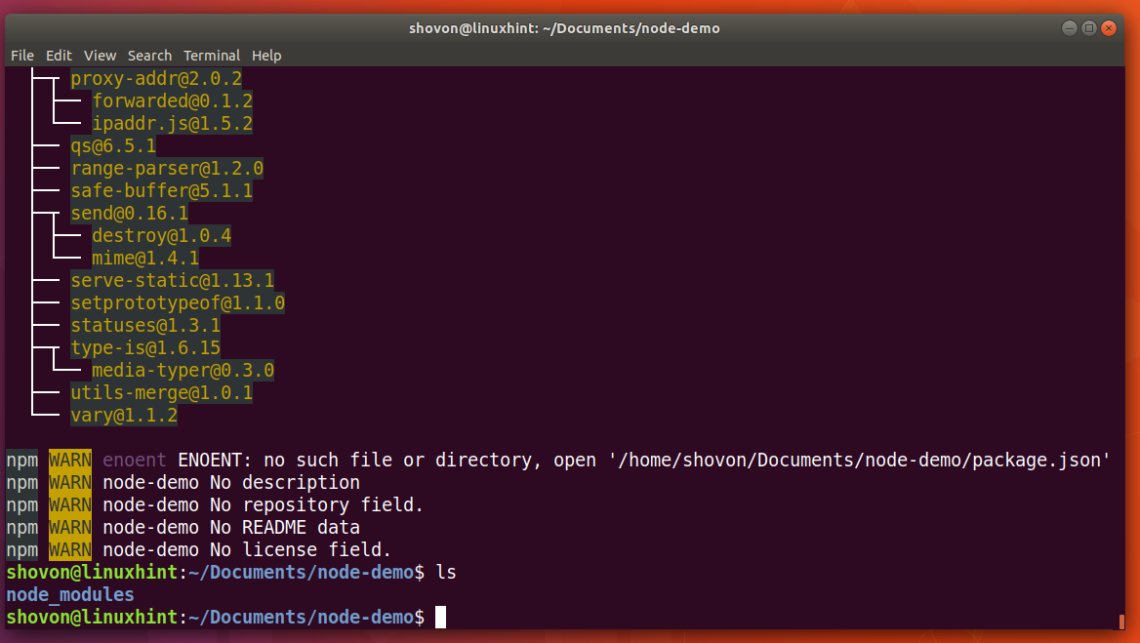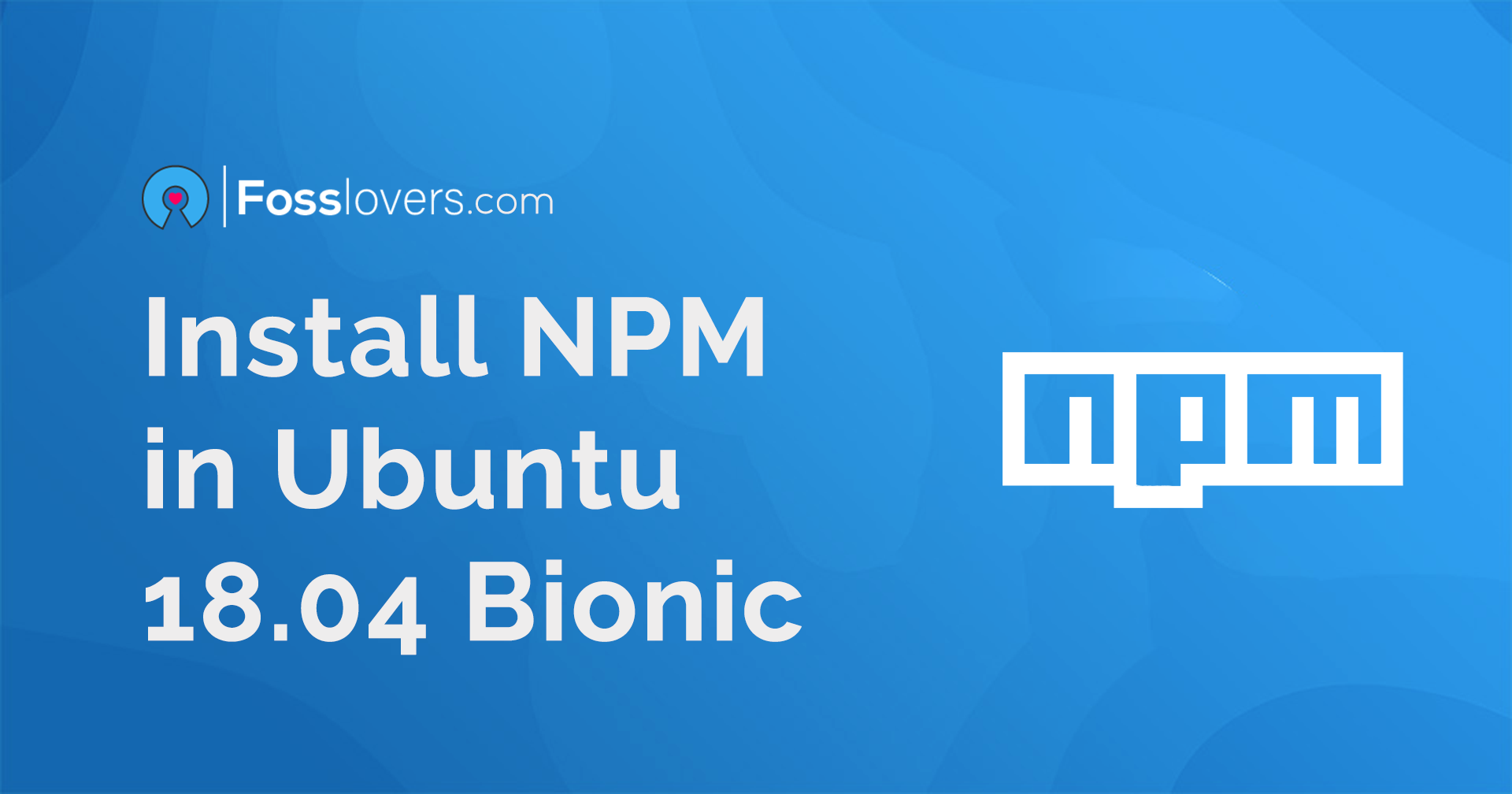How To Install Npm Ubuntu 20.04

In today's technological era, Node.js and its package manager, npm, have become incredibly popular due to their ability to streamline web development processes. If you're interested in learning how to install Node.js and npm on your Ubuntu 18.04, Debian, or Linux Mint operating system, then you've come to the right place. In this post, we'll explore the ins and outs of these two essential tools, and provide a detailed guide on how to install and configure them on your device. Before we begin, let's take a closer look at what Node.js and npm are, and the benefits they provide to web developers. What is Node.js? Node.js is a cross-platform, open source, JavaScript runtime environment that enables developers to execute JavaScript code on the server side. It was first introduced in 2009 by Ryan Dahl, and since then, it has gained a significant following in the developer community. What is npm? npm stands for Node Package Manager, and it is used to install and manage packages, which are JavaScript modules. It provides a centralized repository for packages, making it easy for developers to find and install the packages they need for a particular project. Benefits of Node.js and npm Node.js and npm provide several benefits to web developers. Some of the key benefits include: 1. Greater efficiency: Node.js and npm allow developers to write server-side code in JavaScript, which is the same language used for client-side code. This makes it easier for developers to switch between the client-side and server-side of an application, increasing efficiency and productivity. 2. Easy package installation: npm provides a centralized repository of packages, which makes it easy for developers to find and install the packages they need for a particular project. This also allows developers to share code and collaborate on projects with ease. 3. Improved scalability: Node.js and npm are designed to handle large-scale applications with ease. They provide a non-blocking, event-driven architecture, which allows applications to handle more requests without sacrificing performance. Now that we know what Node.js and npm are and the benefits they provide, let's take a look at the steps you need to follow to install them on your Ubuntu 18.04, Debian, or Linux Mint operating system: Preparation Before we begin, you will need to make sure that you have access to a terminal window on your Ubuntu 18.04, Debian, or Linux Mint machine. You can open a terminal window by pressing the Ctrl+Alt+T keys on your keyboard. Installation of Node.js and npm Now, we can begin installing Node.js and npm on your Ubuntu 18.04, Debian, or Linux Mint machine: Step 1: Update your system packages First, you need to update your system's packages by running the following command in your terminal window: ``` sudo apt update ``` Step 2: Install Node.js Next, we'll install Node.js by running the following command: ``` sudo apt install nodejs ``` Step 3: Install npm Finally, we need to install npm by running the following command: ``` sudo apt install npm ``` That's it! Node.js and npm are now installed on your Ubuntu 18.04, Debian, or Linux Mint machine. Now, let's take a look at some of the packages you can install using npm: 1. Express: Express is a popular web application framework for Node.js. It provides a robust set of features for building web applications, including routing, middleware, and templates. To install Express, you can run the following command in your terminal window: ``` npm install express ``` 2. Socket.io: Socket.io is a real-time engine that enables real-time, bi-directional communication between web clients and servers. To install Socket.io, you can run the following command in your terminal window: ``` npm install socket.io ``` 3. Grunt: Grunt is a task runner for Node.js that automates repetitive tasks, such as minification, compilation, and testing. To install Grunt, you can run the following command in your terminal window: ``` npm install grunt ``` In conclusion, Node.js and npm are essential tools for any web developer. They provide a simple, efficient, and scalable way to build web applications. By following the steps outlined in this guide, you can easily install and use Node.js and npm on your Ubuntu 18.04, Debian, or Linux Mint machine. So, what are you waiting for? Give it a try today!
If you are searching about Install NPM NodeJS Package Manager on Ubuntu you've came to the right place. We have 3 Pics about Install NPM NodeJS Package Manager on Ubuntu like Install NPM NodeJS Package Manager on Ubuntu, Download Npm In Ubuntu - PARKWI and also Download Npm In Ubuntu - PARKWI. Here it is:
How To Install Node.js And Npm Ubuntu 18.04, Debian And Linux Mint
 itcloudnet.blogspot.com
itcloudnet.blogspot.com
npm ubuntu debian
Download Npm In Ubuntu - PARKWI
 parkwi.blogspot.com
parkwi.blogspot.com
ubuntu npm bionic
Ubuntu npm bionic. How to install node.js and npm ubuntu 18.04, debian and linux mint. Npm ubuntu debian
Related post:
👉 How To Install Python Virtualenv On Mac
👉 How To Install Library Python
👉 How To Install Ploty In Python Environment
👉 How To Install Python Core
👉 How To Add Password To Windows 10 Zip File
👉 How To Pip Install Bs4
👉 How To Install Php Tar.gz In Ubuntu
👉 How To Install Npm With Specific Version
👉 How To Install Python Extension In Vscode
👉 How To Install Python Jupyter Notebook In Windows
👉 How To Install Xapk In Mobile
👉 How To Install Python Package On Ubuntu
👉 How To Install Shader In Tlauncher
👉 How To Install Opencv
Belum ada Komentar untuk "How To Install Npm Ubuntu 20.04"
Posting Komentar